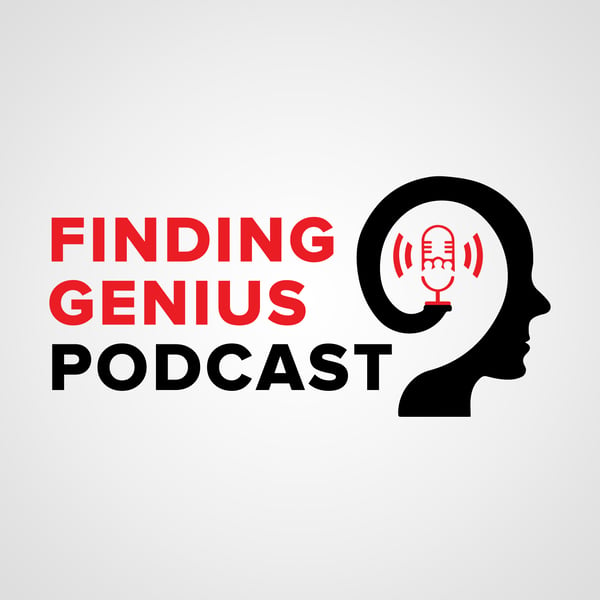Understanding Alzheimer's Disease with Researcher Nikolaos K. Robakis
Finding Genius Podcast
Richard Jacobs
4.4 • 1K Ratings
🗓️ 1 April 2021
⏱️ 32 minutes
🧾️ Download transcript
Summary
If our brains rely on thousands of different pathways to function, where do researchers even start for cognitive disease like Alzheimer's disease (AD)? It's as complicated as it sounds, but researcher Nikolaos Robakis is able to break the process down for listeners and offer insight on neurodegenerative diseases of the brain.
Listen and learn
- How there are two forms of Alzheimer's and what molecular biology techniques are used to study them,
- What role risk factors like diabetes and cardiovascular disease play,
- Why they've zeroed in on the mutation evident in familial Alzheimer's and what it might mean for both types, and
- What they hope to understand about the cascade that leads to neurodegeneration.
Nikolaos K. Robakis is a professor of neuroscience and psychiatry at the Icahn School of Medicine at Mt. Sinai. He's also the A.P. Slaner Professor for Alzheimer's Disease Research. Fine-tuning the prevention and management of Alzheimer's disease relies on a clearer understanding of how the neurodegeneration develops, and that's where Dr. Robakis' work comes in.
He explains that there are actually two forms of Alzheimer's disease: one is the genetic form, called familial Alzheimer's, and the other much more common type that has polymorphic causes is termed the sporadic familial form.
While previously it was thought plaques and tangles in the brain caused Alzheimer's, researchers like Robakis have found that's not necessarily true. By creating a model of familial Alzheimer's, which has a very simple one-gene mutation at its inception, he hopes to learn more about the cascade that leads to the neurodegeneration in both types. While they know about this amino acid mutation, they don't understand how it leads to neuronal death. He adds, "the central question is, what causes the acceleration in the neuronal death?"
Listen in to find out what they think thus far and how this might contribute to better treatment for dementia patients.
Episode also available on Apple Podcasts: apple.co/30PvU9C
Transcript
Click on a timestamp to play from that location
| 0:00.0 | Forget frequently as questions. |
| 0:02.0 | Common sense, common knowledge, or Google. |
| 0:05.0 | How about advice from a real genius? |
| 0:07.0 | 95% of people in any profession are good enough to be qualified in license. |
| 0:11.0 | 5%? |
| 0:12.0 | Go above and beyond. |
| 0:13.0 | They become very good at what they do. |
| 0:15.0 | But only 0.1% are real geniuses. |
| 0:18.0 | Richard Jacobs has made his life's mission to find them for you. |
| 0:22.0 | He hunts down and interviews geniuses in every field. |
| 0:25.0 | Sleep science, cancer, stem cells, ketogenic diets, and more. |
| 0:29.0 | Come the geniuses. |
| 0:30.0 | This is the Finding Genius Podcast. |
| 0:33.0 | The Richard Jacobs. |
| 0:36.0 | Quick note before we begin. |
| 0:39.0 | The Finding Genius Foundation, as part of the Finding Genius Podcast, |
| 0:42.0 | has recently completed a book about understanding viruses. |
| 0:46.0 | So the creation of this book was to interview 100 virologists, |
| 0:50.0 | ask them a lot of deep difficult questions, take the most difficult questions, |
| 0:54.0 | and then re-interview the top 25 or so, |
| 0:57.0 | and ask them the hardest questions I could think of. |
| 0:59.0 | And we compile that all into a book. |
... |
Please login to see the full transcript.
Disclaimer: The podcast and artwork embedded on this page are from Richard Jacobs, and are the property of its owner and not affiliated with or endorsed by Tapesearch.
Generated transcripts are the property of Richard Jacobs and are distributed freely under the Fair Use doctrine. Transcripts generated by Tapesearch are not guaranteed to be accurate.
Copyright © Tapesearch 2025.

